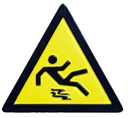By: Howard S. Goldman, Esq.
 It just keeps coming. The past two weeks have seen record-setting winter conditions in the Greater Boston area. Repeated snowstorms and freezing temperatures have prompted many school districts in the area to cancel or delay as many as six days of classes. Like schools, businesses and property owners should be mindful of the effect of winter conditions on their operations to ensure safety and minimize liability and to avoid fines for failure to remove snow. This Client Update surveys some snow-removal fines in the area and discusses recent and major changes in Massachusetts law on the duty of care of a business/property owner regarding snow and ice removal. It also provides a few pragmatic recommendations for a carefully worded Snow Removal Maintenance Agreement that can minimize legal exposure.
It just keeps coming. The past two weeks have seen record-setting winter conditions in the Greater Boston area. Repeated snowstorms and freezing temperatures have prompted many school districts in the area to cancel or delay as many as six days of classes. Like schools, businesses and property owners should be mindful of the effect of winter conditions on their operations to ensure safety and minimize liability and to avoid fines for failure to remove snow. This Client Update surveys some snow-removal fines in the area and discusses recent and major changes in Massachusetts law on the duty of care of a business/property owner regarding snow and ice removal. It also provides a few pragmatic recommendations for a carefully worded Snow Removal Maintenance Agreement that can minimize legal exposure.
Snow Removal Fines
Many Massachusetts property owners are learning the hard way that failure to remove snow on sidewalks in front of their property can result in stiff fines. The precise rules and monetary sanctions concerning snow removal on sidewalks vary from city to city, but all aim towards keeping sidewalks safe for walking. In Boston, for instance, snow removal is required for the full width of the sidewalk or a minimum width of 42 inches and property owners have three hours from the end of snowfall, or three hours from sunrise if the snow falls overnight, to clear the sidewalk. Under the Boston ordinance, property owners must also clear snow that may be blocking handicapped ramps, fire hydrants or catch basins. Daily fines in Boston range from $50 to $150 for failure to remove snow as required. If an individual places snow from private property onto a sidewalk or the street, a daily fine of $250 will be imposed.
Each city and town is a little difference in its respective snow-removal ordinance. In Worcester, property owners must remove snow and ice ten hours after it stops snowing, with a $75 per day fine waiting for those who don’t. In Newton the time window is twenty-four hours with no specific fine set out. In order to avoid these fines, property owners should consult with their local department of public works to understand the time parameters afforded for removing snow and should always avoid placing snow into the street or other public ways.
Change in Massachusetts Law and Duty of Care
Far more threatening to a property owner than a potential $100 fine is the possibility of a lawsuit due to injuries sustained from accumulated snow. Before considering the recently changed legal standard for snow removal, it should be noted that in the commercial landlord-tenant context, the tenant will usually be assigned liability for personal injuries unless the property in question was under the landlord’s control or the landlord contracted to carry out the snow or ice removal and the removal was conducted negligently. As a result, while both a tenant and landlord could potentially be held liable where control of the property is shared, the tenant will typically bear the risk of snow and ice hazards.
For 125 years property owners in Massachusetts found protection in the so-called “natural accumulation rule” against would-be plaintiffs seeking to sue for injuries resulting from snow or ice build-up. The rule required a showing that the snow or ice was “unnatural” in order to successfully recovery a property owner for failure to address the condition. In other words, some sort of human intervention – snowplows, leaking gutters, etc. – had to contribute to the condition.
In the landmark case of Papadopoulos v. Target Corporation, however, the Supreme Judicial Court overruled this standard, eliminating the distinction between natural and unnatural accumulations of ice and snow, holding that the standard for determining a property owner’s liability is the “same obligation of reasonable care that a property owner owes to lawful visitors regarding all other hazards.” In the wake of the Papadopoulos ruling, businesses and property owners can no longer use the fact that the snow or ice conditions were open or obvious and that warning signs were duly posted as a defense to liability. Under the newly articulated duty to act as a reasonable person calculus, relevant circumstances to be considered include:
 likelihood of injury to others;
likelihood of injury to others;- probable seriousness of such injuries;
- burden of reducing or avoiding the risk, such as cost to landowner;
- landowner is not an insurer of its property;
- nor does the case impose unreasonable maintenance burdens;
- amount of anticipated foot traffic;
- adequate maintenance and preventative procedures, including operating gutters and downspouts; and
- walkways, parking lot access ways or dumpsters cleared and not blocked by snow or ice;
The Supreme Judicial Court also noted that the snow removal expected of a property owner will depend upon the circumstances. “[W]hile an owner of a single family home, an apartment house owner, a store owner, and a nursing home operator each owe lawful visitors to their property a duty of reasonable care, what constitutes reasonable snow removal may vary among them.”
Contractual Protection
A properly worded Snow Removal Maintenance Agreement with a snow removal company that is adequately insured can go a long way to minimizing the risk of exposure to property owners. Your Snow Removal Agreement should touch upon the following areas:
- make sure the snow removal company has adequate liability insurance and names the property owner as an additional insured;
- stake the entire property to designate limits to paved areas including driveways, sidewalks, fire alarm stations and mailboxes;
- designate the number, location and maintenance of sandboxes;
- set automatic contractual triggers requiring the snow removal contrator to respond within a specified time frame (i.e. must plow within a half hour of .5 inches of snow)
- require the snow removal company to keep accurate and detailed records of the snow and ice removal to establish the reasonableness of their efforts (i.e. when and where salt was applied, when the parking lot was plowed, when the sidewalks were shoveled and how and what treatment was done after the initial sanding, plowing and shoveling);
- mandate that there must be sanding or salt under all slippery conditions;
- clearly identify what constitutes a storm that requires mitigation measures;
- set limits to the height of permissible snow banks;
- set clear standards upon which a snow removal contractor’s performance can be measured and provide provisions for termination if those standards are not met;
- include a provision requiring immediate notification if the snow removal contractor cannot perform and make them liable for the cost of any substitute snow removal service;
- make sure the snow removal contract is consistent with your city or town’s local ordinances (i.e. many cites such as Boston, Lynn, and Worcester have snow removal ordinances which have certain requirements such as cleaning municipal sidewalks in front of a business or residence);
- include a hold harmless clause that tracks the same language in the Target case, meaning that the snow removal company will indemnify and hold the property owner and/or the property manager harmless for any liability arising from the failure of the snow removal contractor’s failure to use reasonable care to maintain the property in a reasonably safe condition from snow and ice accumulation.
Summary
Therefore, while an owner of a business, a single family home, large condominium, a store owner, and a nursing home operator each owe lawful visitors to their property a duty of reasonable care to keep its property reasonably safe, what constitutes reasonable snow removal will vary among them. You cannot prevent people from suing once they slip and fall on your property. However, if you follow the steps set forth above, you should be able to mount a successful defense by proving that the accident was caused by neither negligence nor a breach of a contractual duty, and make sure all claims are timely reported, in writing, to your insurance agent.

